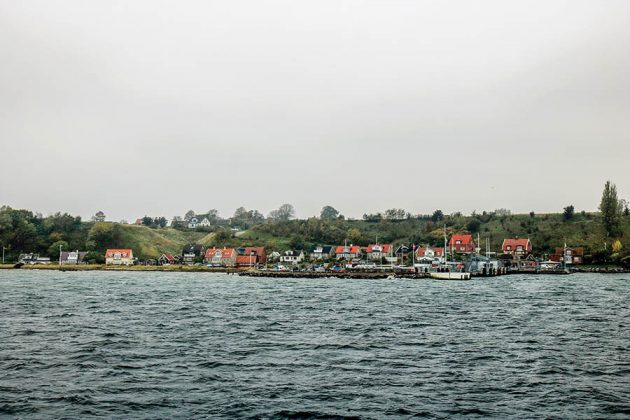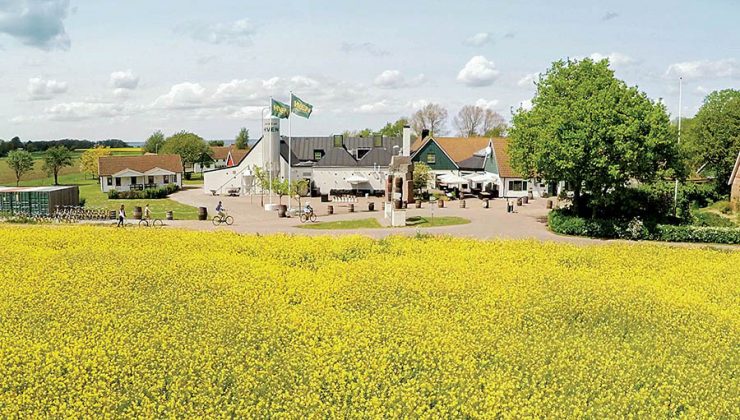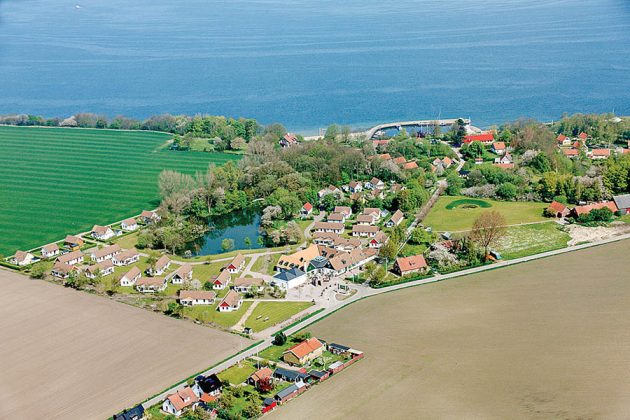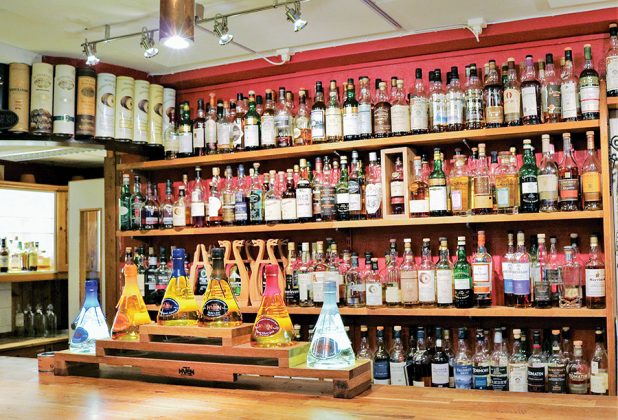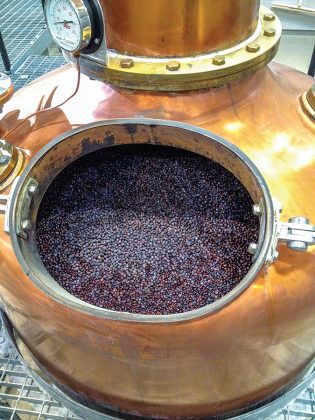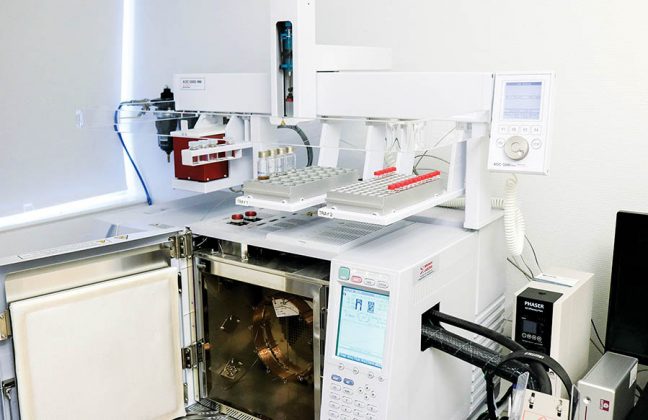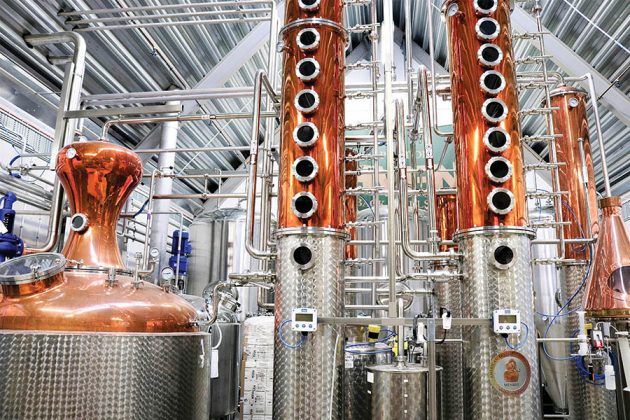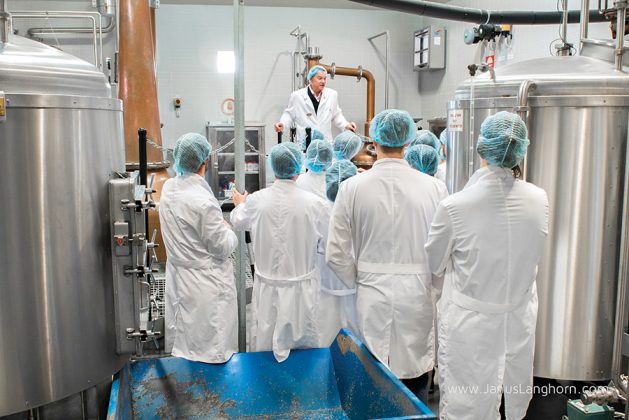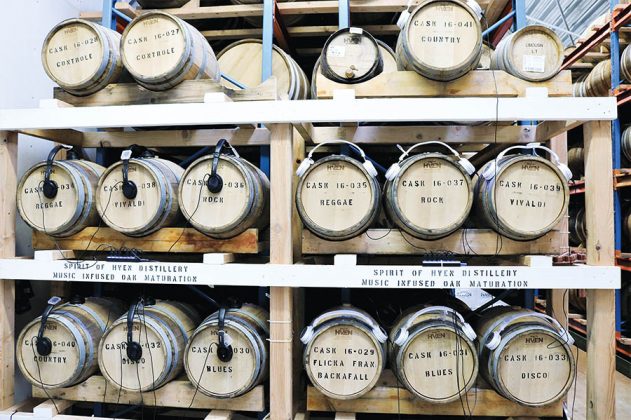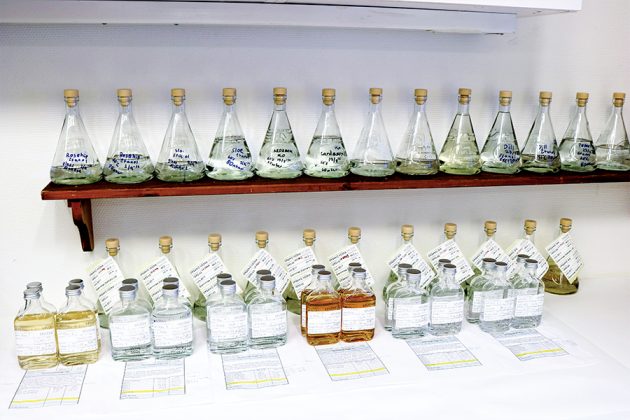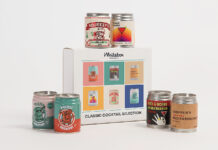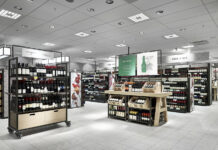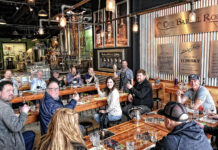“This island is in the middle of nowhere,” says Marcus Christensson, the distillery’s brand manager. He’s speaking of Hven, or Ven, a tiny and remote Swedish island with some 300 residents, and it’s not as if I needed the tip at this stage. We’re speaking in Landskrona, Sweden, as we await our gondola, a slow-moving commuter ferry, to haul us across the Øresund Strait. The ship is but one of the required modes of transportation necessary to complete this multi-leg expedition, following a train and a car, and preceding a bus, the island’s lone passenger route, which picks up visitors at the dock and unloads them down the road to both of the island’s attractions: the Tycho Brahe Museum (celebrating the 16th-century astronomer who’s the island’s most famous native son) and the Spirit of Hven Distillery.
“Really, Hven is a part of greater Copenhagen,” says Christensson, and all of this assumes a starting point of the Danish capital, rather than say New York City, in which case you could add a transatlantic flight, airport transportation and waiting times to the puzzle-piece journey. And suffice it to say that, once most visitors have arrived, they may want to decamp and stay for a while, so it’s a good thing that the Spirit of Hven is part of an entire complex owned by Anja and Henric Molin, including a hotel and conference center, along with an on-site restaurant and a fully-stocked single-malt bar.
The couple founded the distillery in 2008, following their acquisition of the hotel and surrounding property a decade prior. “But Henric always wanted to make whiskey,” Christensson says.
And to walk with Henric through his distillery is to witness a whiskey and spirits supergeek in action, a kid on Christmas morning who can’t believe he got what he asked for, bursting with excitement at the toys and gadgets at his disposal. “I’m kind of a control freak,” he says, giddy and chuckling, whether explaining the differences between Polish and Swedish and Bulgarian juniper, describing his rows of experimental barrels “listening to” a range of different musical genres or deep diving on the terroir of oak from different regions.
As much of the production is handled on-site as possible, from milling to bottling, though a new bottling line will take the bulk of that particular phase of the operation to the mainland, shaving off several of the aforementioned logistical steps in traveling to and from the island and therefore easing sales and distribution. Suffice it to say, though, that there are toys aplenty for Henric to put to use.
Spirit of Hven makes use of a Northern Fabricators double pot still rig, with sizes of 1,500L and 780L, as well as a hybrid batch-distillation still including a 3,000-L copper pot with a double column totaling 28 plates and dephlegmators. The shiny stills may be the most eye-catching, but Henric is just as eager to discuss the intricacies of mashing and fermentation. “We create everything here,” he says while pointing to the washbacks. Around every corner is another nugget of information waiting to be gleaned from the mind of Molin, whether phenol thresholds, fermentation temperatures or an ongoing balance between efficiency and flavor.
The distillery’s flagship single malt whiskey is Tycho’s Star, and it also produces an annual Seven Stars whiskey release. The sixth was released in spring 2018, and each is named for one of the seven stars of the Big Dipper. Both are nods to, you guessed it, Hven’s own Tycho Brahe. The distillery doesn’t stop there, though. There’s a lineup of different gins, special seasonal releases, vodka and, of course, aquavit. This is Scandinavia, after all.
Spirit of Hven is also a fully organic operation, and that means that everything in its barrels must always have been organic, too. In other words, say goodbye to used casks from nonorganic producers. Therefore, before maturing its whiskey, the distillery cools down the hefty tannic influences from fresh barrels with its vodka. The oak-aged vodka is then redistilled to strip the color and concentrate certain flavors while retaining a distinctive mouthfeel.
Vodka made in Sweden must be distilled to 96% ABV, as opposed to the 95% ABV of U.S. production. The key to creating a distinctive product is working with the percentage points separating a still’s maximum distillation strength—96.4 to 96.5% at Spirit of Hven—from the minimum requirement. “It’s the technique and challenge of making vodka,” Molin says.
Put On Your Lab Coats
“It’s not rocket science,” Molin says of distillation and spirits production. Yet, you’d be forgiven if you thought that was the case after a visit to another key component of Anja and Henric’s Spirit of Hven sanctuary—a world-class laboratory for spirits analysis and recipe development.
“I like to say we’re a small distillery with a big laboratory,” Christensson says.
The thinking behind the laboratory leg of their operation was simple. “If we want this information for our products, other people likely do as well,” Molin says.
The lab chiefly employs an escalating series of four tests, all designed to separate, recognize and measure compounds of all sizes and varieties. This begins with visual microscopy inspection and simple spectrophotometric analysis. This is followed by liquid chromatography, focused on compounds with high vapor and boiling points. The next, gas chromatography is conducted at up to 400 degrees Celsius, which essentially includes the limits of what people can smell. Last, but certainly not least, is inductively coupled plasma mass spectrometry, raising temperatures up to 10,000 degrees Celsius. “It’s our last line of defense,” Molin says.
While the large spirits conglomerates certainly have massive laboratories of their own, one wonders if there are any other small or upstart producers wielding such scientific firepower. “I would say none,” Molin answers. “What we have is unique.”
And it’s not just the technical capabilities, but also an open-for-business approach to work with any spirits producer the world over, comparing the composition of its spirits to the thousands upon thousands of spirits the lab has already analyzed. This offers not only precise data for the composition of a spirit, but also the hard-earned insight of how that translates to a final product, and further, the insight necessary to turn those results into actionable steps for tweaking production for different and superior outcomes, all in the quest to fine-tune and hone in on particular flavors and qualities.
“Suntory is the best in the world at analyzing,” Molin says. But good luck getting your distillery’s product analyzed by them and compared to their standards. “We have a unique library and sample stock, and we’re fortunate to work with so many people, the small guys and the big guys. And it’s quite fun.”
Coming to America
While guests to Spirit of Hven can have a tour and a tasting—and then stay for dinner and drinks and a night or two in the hotel—one thing you can’t do at the distillery is leave with a bottle. Thanks to Systembolaget, the Swedish government-owned alcohol store monopoly, no on-site bottle sales are allowed. In fact, no alcohol of any kind can be purchased beyond the tightly controlled government stores (excluding watered-down beer at a maximum of 3.5% ABV).
The good news is that Spirit of Hven’s products are now reaching U.S. shelves, via Preiss Imports. Key to that arrangement was not only business strategy and sales figures, but relationship building and planning for the long haul. “Everything we do is for the long term,” Christensson says. “Hopefully this distillery will be here for a few generations.”
It’s no surprise that the two companies share a familial approach to business and formed a quick rapport after meeting two years ago at the Wine and Spirits Wholesalers Convention. “It was a mutual bonding between our two families that brought us together,” says Henry Preiss. “Considering Nikki is the third generation of the Preiss family in the alcohol beverage business, we certainly have a similarity with the Molins of our vision.”
Perhaps then Charlie, Anja and Henric’s son, will be the one doing business with Preiss Imports and Henry’s daughter Nikki down the road. Of course, none of that would matter if the products and the approach behind them didn’t hold up on their own.
That’s why what attracted Henry most to Spirit of Hven was, “the dedication to perfection and attention to every detail, not to mention the wonderful people behind the brand.”
Witness that dedication when you try your first sip. Or just take a plane, train, car, ferry and bus to tour the facility yourself.

